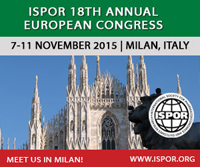Friuli-Venezia Giulia
DOI:
https://doi.org/10.7175/fe.v13i2S.456Keywords:
HPV, Vaccination strategy, Screening, Friuli-Venezia Giulia, Cost-effectiveness analysisAbstract
In Friuli-Venezia Giulia region 86% of women (aged 24-64) are screened regularly, meaning every 3 years. The analysis on cross-protective activity exercised by bivalent and quadrivalent vaccines shows that the bivalent vaccine could prevent more pre-cancerous lesions and cases of cervicocarcinoma than quadrivalent, and that the latter could prevent genital warts that are not prevented by bivalent. The major number of cases avoided by the bivalent make it possible to fully offset the cost savings related to warts associated with the quadrivalent vaccine. Furthermore, a cost-effectiveness analysis shows that, considering regional tariffs, the multiple cohort (12-year-old + 25-year-old women) vaccination strategy with a 90% coverage could prevent 8 cases of cervicocarcinoma and 3 related deaths more than the vaccination of only 12-year-old girls, and thus proves to be cost-effective (11,960 €/QALY).Published
2012-11-20
How to Cite
Gasparini, R., Panatto, D., Dirodi, B., Prato, R., Amunni, G., Turello, V., … Bonanni, P. (2012). Friuli-Venezia Giulia. Farmeconomia. Health Economics and Therapeutic Pathways, 13(2S), 34–36. https://doi.org/10.7175/fe.v13i2S.456
Issue
Section
Supplement
License
Authors who publish with this journal agree to the following terms:
- Authors retain copyright and grant the journal right of first publication with the work simultaneously licensed under a Creative Commons Attribution-NonCommercial 4.0 License that allows others to share the work with an acknowledgement of the work's authorship and initial publication in this journal.
- Authors are able to enter into separate, additional contractual arrangements for the non-exclusive distribution of the journal's published version of the work (e.g., post it to an institutional repository or publish it in a book), with an acknowledgement of its initial publication in this journal. The Publication Agreement can be downloaded here, and should be signed by the Authors and sent to the Publisher when the article has been accepted for publication in this journal.
- Authors are permitted and encouraged to post their work online (e.g., in institutional repositories or on their website) prior to and during the submission process, as it can lead to productive exchanges, as well as earlier and greater citation of published work (see The Effect of Open Access).
- Authors are permitted to post their work online after publication (the article must link to publisher version, in html format)






